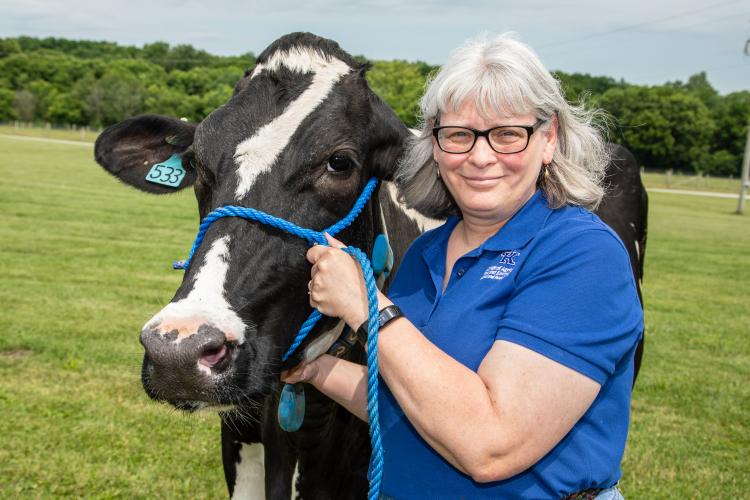UK specialist offers strategies for dairy farmers in case of pandemic-induced demand drop
UK specialist offers strategies for dairy farmers in case of pandemic-induced demand drop


The unprecedented COVID-19 pandemic has greatly affected many aspects of agriculture. While Kentucky dairy production has operated on schedule thus far, University of Kentucky dairy scientists want to offer guidance to producers to help them prepare in the event they are asked to decrease milk production.
“As of yet, Kentucky producers haven’t been asked to decrease the amount of milk they produce,” said Donna Amaral-Phillips, dairy scientist for the UK College of Agriculture, Food and Environment. “But with the current oversupply of milk associated with the closure of restaurants and other food outlets, Kentucky dairy farmers may need to start thinking about what they might do, if they are asked to do that.”
Trying to balance decreased demand, while still prioritizing the long-term health and performance of dairy cattle and their replacements will be the goal. Amaral-Phillips admits it will be a tough time to navigate, with many producers having to make painful decisions to stay afloat.
“It goes against the foundation we have built for feeding and managing dairy herds,” she said. “The results greatly impact on-farm cash flow even more than we’ve already seen in our state and in our industry.”
In today’s volatile business climate, dairy producers need to start thinking through various scenarios and with change happening sometimes at warp speed, those able to do so quickly will find it easier to succeed.
It’s important to identify the most profitable cows in the herd. Producers base those decisions on a variety of things. Some may lean toward cows with above-average milk production, cows who have rebred in a timely manner or those with a low somatic cell count.
“Make a priority list for those cows that are least profitable,” Amaral-Phillips said. “Most likely, those cows will have several strikes against them such as higher somatic cell counts, numerous cases of clinical mastitis, breeding issues. Some of those cows may need to enter their second career as beef cattle sooner than you planned, but later when cull cow prices are reasonable, and markets and harvest facilities are open.”
Another strategy is to dry cows off early and then place them in a separate group from the normal dry cows, and feed them a maintenance diet so they don’t gain too much weight. Producers can work with their nutritionist to develop a ration especially for this group, so they get enough feed, but not too much energy and protein. Amaral-Phillips emphasized that the diet still needs to contain the proper amounts of vitamins and minerals. This strategy will reduce feed costs and prevent future health issues.
Producers could reduce from three milkings a day to two, especially for those cows in later lactation.
Feeding calves whole milk instead of milk replacer and weaning them later is a viable option. Whole milk from a Holstein cow has about the same protein concentration as an accelerated milk replacer.
“The ‘old timers’ often made a statement that calves did better on whole milk than a 20:20 milk replacer,” Amaral-Phillips said. “Remember though, if you do feed whole milk, do it within an hour of harvest to reduce bacterial loads, preferably pasteurized.”
One strategy she doesn’t like is decreasing nutrient density across the herd to support a lower amount of milk production.
“The problem with this is that early lactation cows are geared toward producing milk at the expense of their body reserves,” she said. “Essentially, they will take care of their current lactation needs before they get pregnant, and that can make rebreeding more difficult, further impacting a producer’s cash flow down the road.
Extension

